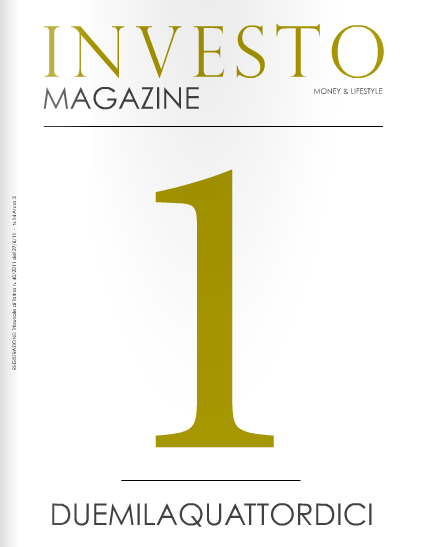La crisi economica ha cambiato non solo il sistema finanziario ma ha cambiato anche il nostro futuro. In gioco c’è l’avvenire dei nostri figli e dei nostri nipoti, potremmo dire anche pronipoti. Dobbiamo cambiare il nostro modo di pensare l’economia. A questo proposito si dovrebbe parlare di educazione finanziaria. Magari, si potrebbero istituire dei corsi nelle scuole con docenti che non conoscano solo la materia economica ma che sappiano anche qualcosa di educazione civica e di storia umana, perché purtroppo in campo economico il pensiero umano può diventare patologico.
Che cos’è un comportamento sano? E che cos’è un comportamento patologico? Per definire che cos’è patologico dobbiamo avere almeno una vaga idea di cosa sia sano. In teoria è sano usare i soldi per riuscire in qualche modo a vivere meglio, come ad esempio comprare un giubbotto pesante nella stagione invernale. E dovrebbe essere considerato patologico il desiderio del denaro fine a se stesso, cioè accumularlo senza sfruttarlo per rendere migliore la nostra esistenza.
In teoria con l’aumento del reddito pro capite ognuno avrebbe dovuto lavorare di meno. Eppure non è così, e allora la domanda sorge spontanea: che cosa se ne fa un individuo del denaro in più, una volta che ha soddisfatto i bisogni? Potrebbe semplicemente godersi il tempo libero con quel surplus. Invece che cosa accade? Con l’aumento del reddito un individuo vuole sempre più denaro, solo per definirsi “più ricco” di un altro, solo per affermare che è sua “l’erba più verde”, non quella del vicino. Ma non solo, la gente pensa che il modo migliore per godersi la vita, il tempo libero e i soldi sia proprio lavorare. Perché purtroppo – o per fortuna – il lavoro aiuta a dare un senso alla nostra esistenza. Il lavoro è un potente generatore di senso e ci garantisce un’identità in un’era in cui nulla sembra averne una, in cui tutto tende a essere unificato, uguale a se stesso. Insomma globalizzato. Ci gratifica sapere chi siamo e che stiamo raggiungendo uno scopo. L’homo sapiens sapiens è a tutti gli effetti un homo faber. Non a caso, quando ci chiedono chi siamo, rispondiamo che siamo il lavoro che svolgiamo.
Da questa introduzione sembra che sia patologico lavorare troppo al fine esclusivo di accumulare denaro. Invece è proprio il contrario. L’accumulo di denaro è una conseguenza del troppo lavorare che però ci gratifica e ci identifica. Quindi sano è colui che lavora tanto, perché è soddisfatto. Se è davvero così, che cosa si può fare per insegnare ai nostri giovani ad accumulare denaro senza ammalarsi? Senza farci diventare, per intenderci, dei moderni Paperoni. Innanzi tutto occorre che le diverse professioni non siano retribuite in modo diseguale. Queste differenze non sono basate su esigenze funzionali, bensì su stereotipi culturali. Ed è qui che deve intervenire una corretta educazione finanziaria. In teoria l’essere umano privilegia alcune professioni esclusivamente per la retribuzione che la società gli ha conferito. Quindi dovremmo considerare una professione più appetibile non in base alla retribuzione, ma all’utilità che ha per gli altri. Dovremmo privilegiare un mestiere per il suo valore sociale, per quanto benessere può procurare agli altri. Ad esempio banchieri e finanzieri sono tipologie di professionisti che tutti vorremmo essere. Ma sono utili unicamente per il prolificare del profitto. Invece, casalinghe e operatori ecologici, per non parlare delle badanti, sono ruoli che nessuno ha voglia di rivestire. Eppure, sono forse più utili.
Professioni poco riconoscibili ma molto retribuite non creano molta ricchezza, mentre mestieri molto utili ma poco retribuiti creano molta ricchezza. Forse occorrerebbe partire proprio da qui per una corretta educazione finanziaria. Se le persone preferiscono il confronto rispetto all’accumulo di denaro fine a se stesso, allora si spiega perché l’aumento del reddito pro capite non ha incrementato il benessere soggettivo percepito dal singolo. Infatti, siamo soddisfatti quando raggiungiamo uno scopo ma allo stesso tempo questo scopo non deve migliorare solo la nostra esistenza, deve essere anche utile per gli altri. Ecco spiegato lo scontento.
Insomma, i giovani vanno educati ad un nuovo modo di pensare l’economia, il lavoro e la società. A partire dalla parola “crisi”, che non significa tragedia ma vuol dire cambiamento. Per superare la crisi economica bisogna cambiare.The economic crisis has changed not only the financial system but has also changed our future. The future of our children and our grandchildren , if not even our grand-grandchildren, is at stake. We have to change the way we look at economy. In this regard, we should talk about financial education. Maybe, we could create some courses in schools held by teachers who have knowledge in economics but also in civics and human history because, unfortunately, in economy human thought can become pathological.
What is a sane behavior? And what is a pathological behavior? In order to describe what is pathological, we should have a slight idea of what is sane. Theoretically it is sane to use money in order to have a better living, for example to buy a heavy jacket for the winter. And it should be considered pathological the desire for money an end in itself, that is to accumulate money and not spending any of it to improve the standard of living.
Theoretically, with the increasing of the per capita income each of us should have worked less: do you need more money after having satisfied all your needs? You could simply use that surplus to enjoy some free time. What happens instead? Because of income increase a person wants more and more money just to say that he/her is richer than somebody else, his/her grass is greener than the neighbor. And that’s not all: people think that the best way to enjoy life, free time and money is working. Because, unfortunately, working helps us to give some meaning to our existence. Working is a powerful producer of meaning and guarantees us an identity, in an era where nothing seems to have one left. It is rewarding to know who we are and that we are achieving our goal. Homo sapiens sapiens is, to all intents and purposes, a homo faber. In fact, when we are asked who we are, we replay that we are what we do.
From this introduction it seems pathological to work too much with the only purpose to make money. Quite the opposite. Saving money is a consequence of too much work, but it something that rewards and identifies us. Therefore sane is somebody who works hard, because he/she is satisfy. If it is really so, what can we do to teach our children how to save money without becoming sick? Without them becoming, so to speak, some modern uncles Scrooge. First of all: professions should not be so unequally paid. These differences are not based on practical needs, but on cultural stereotypes. We need a proper financial education. Theoretically, the human being prefers some professions according to the pay given by society. Therefore we should consider a profession more interesting than another not because of the pay but because of the importance that it has for others. We should favor a job because of its social value, how it benefits others. For example, everybody wishes to be a banker and financier. But are they so useful? Instead, housewives and waste collectors, not to mention the caretakers, are professions that nobody wants to practice. Though very helpful.
Less useful but well paid professions do not generate wealth, instead very useful but poorly paid professions generate wealth. We should start from here for a proper financial education. If people prefer to compare than to save money an end in itself, then it explains why the increase in per capita income has not increased the personal wealth felt by the individual. Indeed, we are satisfy when we reach our goal buy at the same time this goal has to improve not only our existence, but also has to be useful for others. This explains the disappointment.
In conclusion, as I said in the beginning, young people should be educated to a new way of thinking about economy, jobs and society. From my point of view, we should start from the word “crisis”, that does not means tragedy but change. To overcome the economic crisis we need to change.
» 2014 – Numero 1, In evidenza » L’educazione finanziariaFinancial education






 youhost
youhost